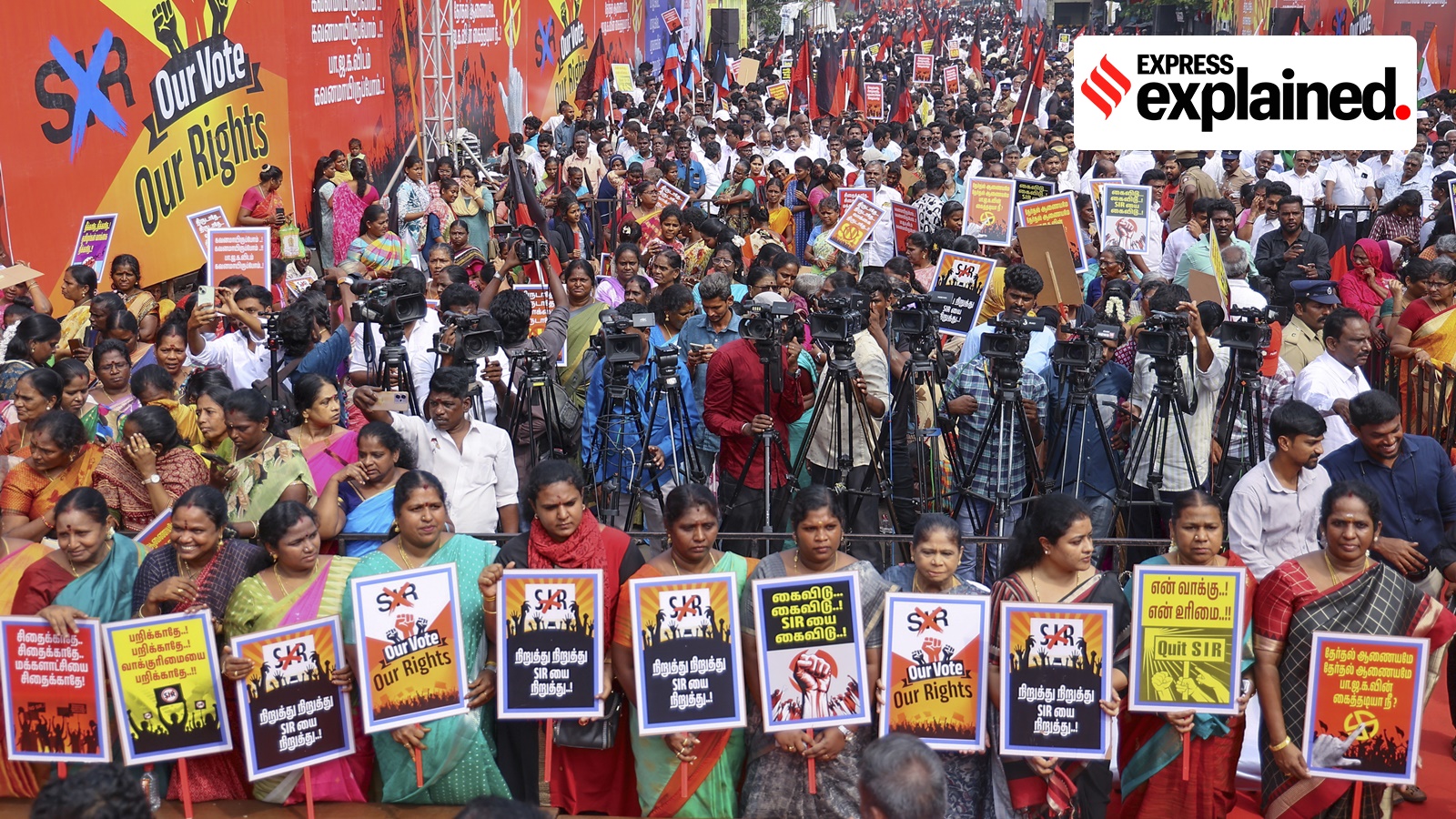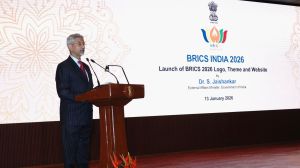So far, the BLA of a party had to be a registered elector of the booth in which he or she is appointed. Now, the EC has relaxed the condition and allowed parties to appoint a registered elector from the same Assembly constituency if they cannot find a BLA in the same booth.
We look at the significance of the BLAs and why the new rule has sparked a political storm:
What is the role of the BLA?
Along the lines of polling agents and counting agents appointed by candidates to be their eyes and ears during the voting and counting processes respectively, the Election Commission introduced the concept of Booth Level Agents in November 2008. This was done to enhance the participation of the recognised national and state parties during the process of preparation and revision of electoral rolls, the EC says in its Manual on Electoral Rolls, 2023.
All recognised parties, through their president or secretary or any other office-bearer, can authorise district representatives to appoint BLAs. The authorised district representative can then appoint BLA 1 (for the district level) and BLA 2( for the booth level). The lists of these appointments have to be submitted to the EC.
“The Booth Level Agent must be a registered elector in the relevant part of the electoral roll for which he is appointed as it is expected that the Booth Level Agent will scrutinise the entries in the draft roll during revision period and also identify entries of dead and shifted electors,” the 2023 manual said.
Story continues below this ad
The concept of the BLA was introduced to complement the work of the EC-appointed Booth Level Officer (BLO), who is usually a state government employee local to the area. During the process of the annual and pre-election revision of electoral rolls, the BLAs are supposed to be present for the receipt of claims and objections filed with the authorities. The BLAs can also identify the voters who have died or shifted through a house-to-house survey and give a list to the BLO.
The BLAs have been given the option to file up to 10 applications a day on behalf of electors. Political parties can only submit bulk applications during the revision process through their appointed BLAs. The BLA is usually a party worker or supporter registered in the same booth, so he or she can recognise the electors on the rolls and identify if there are any eligible names left out or object to ineligible electors.
The role of the BLA is particularly significant now as the EC has embarked on the SIR, where electoral rolls are being prepared afresh. Over the past few years, parties, including the Congress and Trinamool Congress, have raised concerns over the purity of electoral rolls. Most recently, Leader of Opposition in the Lok Sabha Rahul Gandhi has alleged discrepancies in the Haryana electoral rolls.
What is the amendment?
Writing to Chief Electoral Officers of all States and UTs on November 11, the EC said it was amending its earlier instructions regarding appointment of BLAs and the Manual on Electoral Rolls.
Story continues below this ad
The new instruction reads: “Normally, one BLA may be appointed for each Part [booth] of the electoral roll. The BLA should be a registered elector in the relevant Part of the electoral roll for which he/she is appointed. In case of unavailability of BLA from the same Part of the electoral roll, BLA may be appointed from any registered elector of the same Assembly Constituency. It is expected that the BLA will scrutinise the entries in the draft roll of the Part for which he/she is appointed as BLA to identify entries of electors who are dead or shifted.”
The option of choosing a BLA from outside of the booth has thus been added. This, EC sources said, was done to enable greater participation of political parties during the revision process as it had received feedback that parties were unable to find BLAs registered in the same booth.
Over the years, the EC has been asking parties to appoint more BLAs, but the concept has been slow to take off. In the case of the 12 states and UTs where the SIR is ongoing, a total of 7.64 lakh BLAs have been appointed for the 5.33 lakh booths — not even two per booth on average. Considering that there are six national parties and several state parties in each state, the number of BLAs appointed is especially low.
How has the change been received?
The EC’s move was immediately welcomed by the BJP, while the TMC accused the commission of favouring the BJP in West Bengal with the change.
Story continues below this ad
“I welcome the Election Commission of India’s timely decision on modifications to the Booth Level Agent (BLA) appointment criteria. This progressive step, outlined in the ECI’s directive enhances flexibility…This will undoubtedly strengthen the integrity of our electoral process, promote transparency, and empower political parties to contribute more effectively towards accurate voter lists. A big thumbs up to the ECI for listening to the ground realities and bolstering democracy,” BJP leader and Leader of Opposition in the West Bengal Assembly Suvendu Adhikari said on X on November 11.
TMC MP Kalyan Banerjee hit back on November 12, saying the new criterion would benefit the BJP as it was finding it difficult to find BLAs in all booths in West Bengal, where the SIR is ongoing.
“The Election Commission has once again bent the rules of the SIR process overnight — blatantly to favour the BJP! Until now, the rule was crystal clear: a Booth Level Agent (BLA) had to be a voter of the same booth. But since the BJP has failed miserably to find agents across all booths, the Election Commission has conveniently rewritten the rulebook. Now, a BLA can be a voter from any booth within the same assembly constituency. This isn’t a reform — it’s a calculated manipulation! How shamelessly can the Election Commission compromise its neutrality? The entire SIR process has been turned into a tool to serve the BJP’s political convenience instead of protecting electoral fairness,” Banerjee said.








































